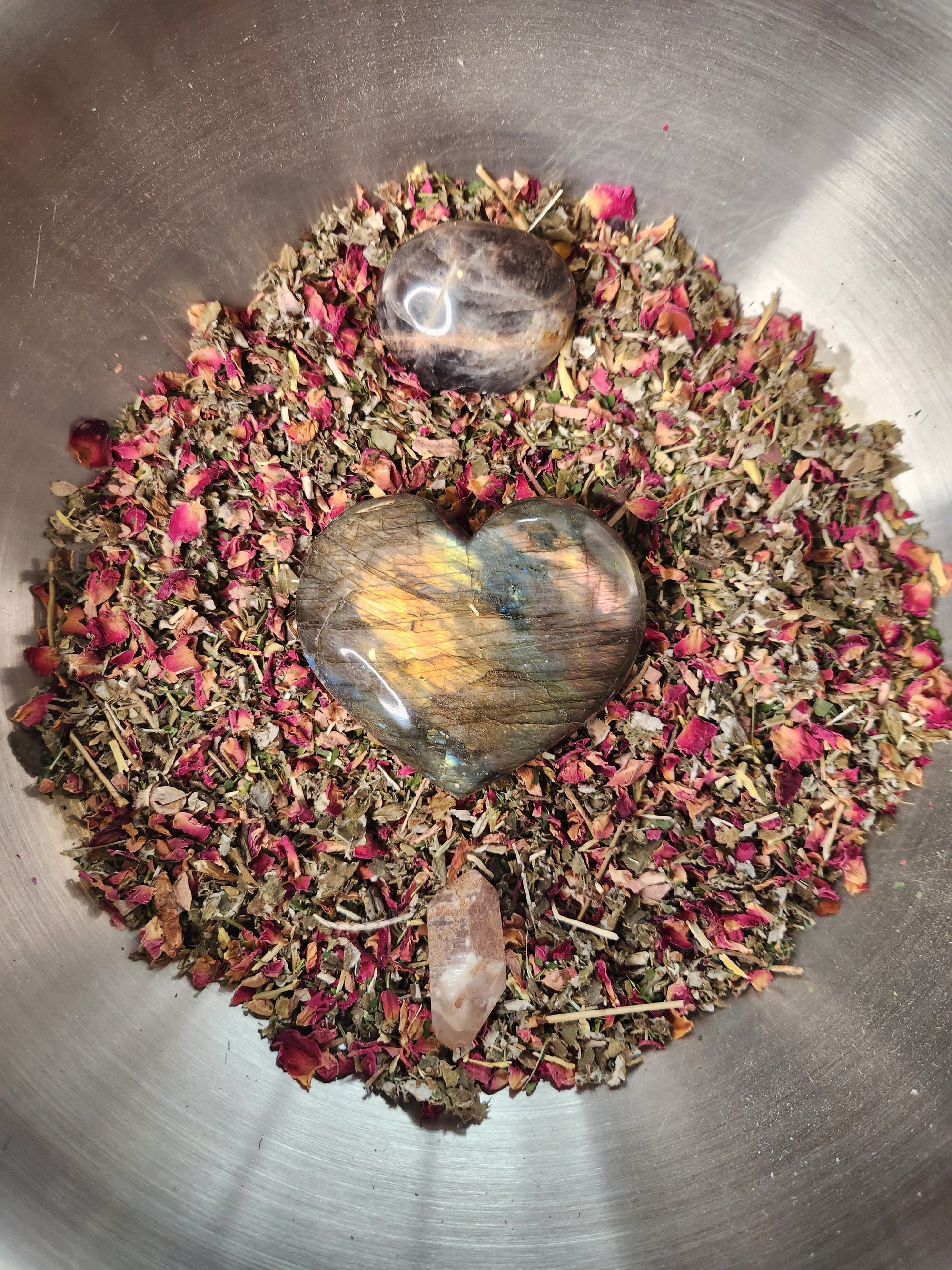How Do We Fit Herbs Into Our Busy Lives?
For many of us, herbalism may seem like something we turn to only when we’re feeling unwell—a quick dropperful of tincture to “fix” a problem. But true herbalism is so much more than a remedy for sickness; it’s a way to weave nourishment, support, and even a touch of magic into our daily lives. Instead of focusing on illness, holistic herbalism encourages us to embrace health, vitality, and balance every day.
In our fast-paced lives, it might feel nearly impossible to carve out time for self-care. Yet, incorporating herbs doesn’t have to be complicated or time-consuming. Here’s how we can integrate them into our lives in ways that feel natural, enjoyable, and accessible.
1. Food as Medicine: Herbs in Your Kitchen
Herbs aren’t just for teas and tinctures; they can also be woven into the food we eat every day. Start by incorporating new herbs and spices into your meals. Add fresh basil to a salad, sprinkle rosemary over roasted vegetables, or brew up a nourishing broth with thyme and garlic. Herbal cooking is an art that delights the senses and feeds the soul.
2. Self-Care Rituals: Herbalism as Daily Nourishment
Self-care can be as simple as a daily tea ritual or spending time alone in nature. Choose an herb that speaks to you—perhaps chamomile for calm, peppermint for a refreshing boost, or Tulsi for clarity. Making time for tea each day creates a grounding ritual, reminding you to slow down and savor a moment of connection with yourself.
If you’re curious about adding more self-care rituals to your life, my Herbal Calm program offers guided ways to connect deeply with yourself and the natural world through herbs.
3. Preventative Care: Small, Intentional Choices
Herbalism isn’t about perfection; it’s about small, supportive choices. On days when life gets hectic or you indulge in a little junk food, balance it out with a cup of supportive tea or a restorative herbal infusion. Think of herbs as your allies, quietly working alongside you, helping you maintain balance even when life feels chaotic.
4. Cost-Effective Nourishment: Simple Herbal Teas
Sometimes, especially when fresh vegetables are scarce or schedules are packed, a simple herbal tea blend can offer support. Chamomile, nettle, or mint teas are easy to make and cost-effective, providing nourishment and a sense of comfort when we need it most.
5. Indulgence: Finding Joy in Herbalism
Herbalism is also about indulgence—letting yourself experience the delightful, sensory side of plants. A soothing bath with lavender, a fragrant rose tea, or a spiced chai can be deeply satisfying. These moments remind us that herbs aren’t just medicine; they’re a way to celebrate the beauty and joy in life.

In the end, herbalism is about nurturing yourself in ways that feel simple, accessible, and uplifting. Whether it’s adding a sprinkle of sage to your soup or taking a quiet moment to sip your favorite tea, let herbalism support you in creating a life that’s full, balanced, and vibrant.
If you're ready to deepen your connection to herbs and integrate them into your daily life, consider joining our Herbal Calm program. This journey goes beyond basic practices, offering guided support, resources, and a community to explore herbalism as a true lifestyle. Learn how to use herbs to ground, uplift, and nourish yourself—all in a way that flows with your busy life.
Discover more about Herbal Calm and take the next step toward a life where herbal wisdom meets daily intention.



